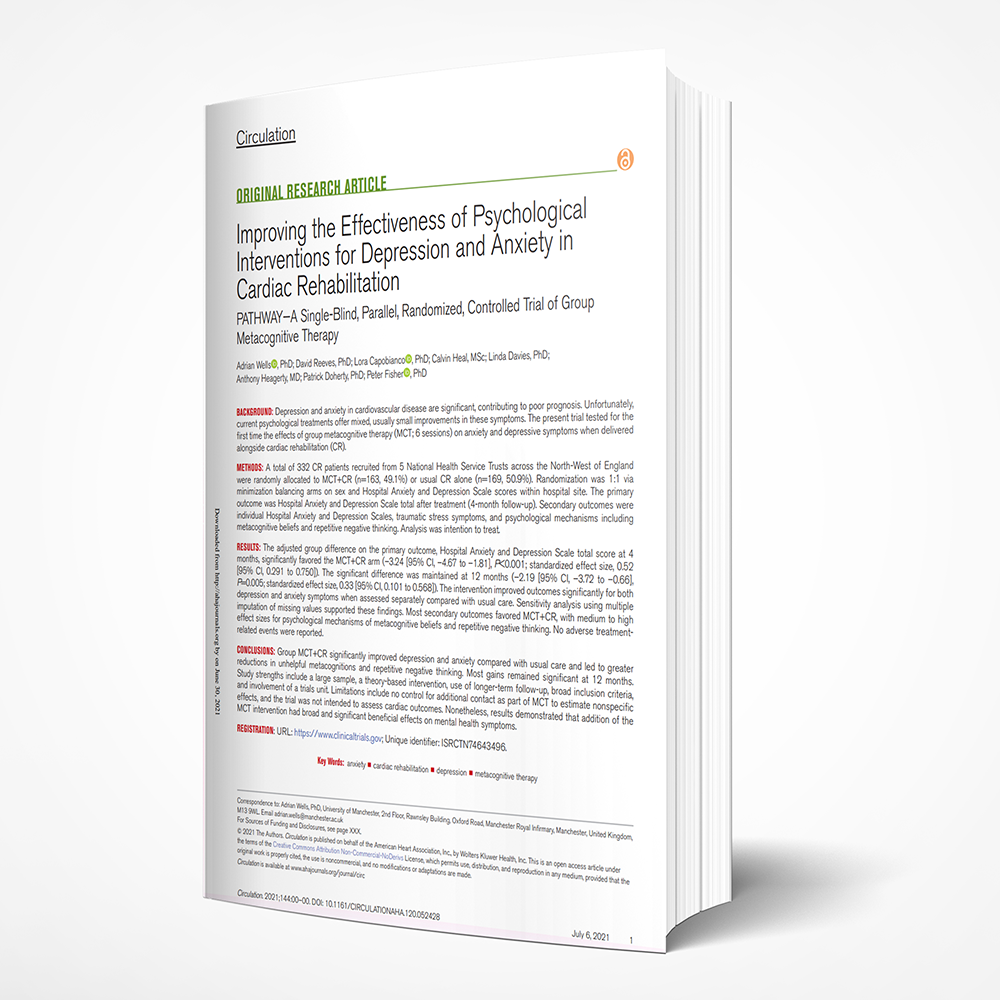
Wells, A., Reeves, D., Capobianco, L., Heal, C., Davies, L., Heagerty, A., … & Fisher, P. (2021). Improving the Effectiveness of Psychological Interventions for Depression and Anxiety in Cardiac Rehabilitation: PATHWAY—A Single-Blind, Parallel, Randomized, Controlled Trial of Group Metacognitive Therapy. Circulation, 144(1), 23-33.
Background: Congenital heart conditions are amongst the most common non-communicable diseases in children and young people (CYP), affecting 13.9 million CYP globally. While survival rates are increasing, support for young people adjusting to life with a heart condition is lacking. Furthermore, 1 in 3 CYP with heart conditions also experience anxiety, depression, or adjustment disorder, for which little support is offered. While adults are offered cardiac rehabilitation (CR) to support their mental and physical health, this is not offered for CYP.
One way to overcome this is to evaluate a CR programme comprising exercise with mental health support (CardioActive; CA) for CYP with heart conditions. The exercise and mental health components are informed by the metacognitive model, which has shown to be effective in treating anxiety and depression in CYP and associated with improving psychological outcomes in adult CR.

